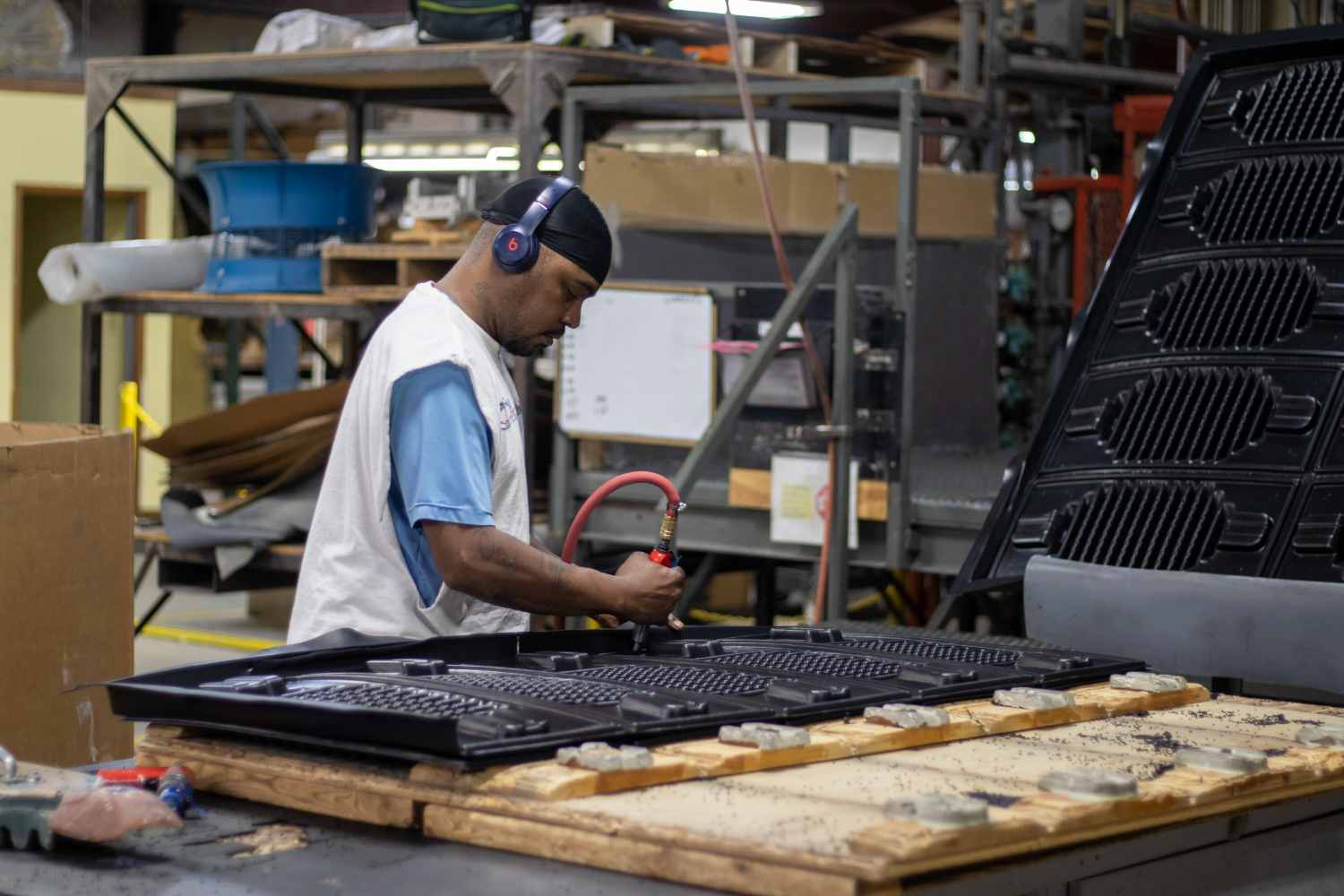Why Thermoplastics are an Eco-Friendly Choice for Manufacturing
At PCI, we are committed to environmental sustainability and proud to be a plastic thermoforming industry leader. We believe our products should be as green as possible, which is one reason we focus on thermoplastics.
Thermoplastics are an ideal choice for manufacturing because they are environmentally friendly, can be recycled indefinitely, and have many other benefits. Let’s examine why thermoplastics are an excellent choice for businesses looking to reduce their environmental footprint.
What Are Thermoplastics?
Thermoplastics are used in various applications and industries, including automotive, aerospace, medical, packaging, construction, and consumer goods. They can be found in everyday objects such as water bottles, food containers, toys, and electronics.
One of the key advantages of thermoplastics is their ability to be molded into different shapes, and forms using various manufacturing techniques, including injection molding, blow molding, and extrusion. This allows for creation of complex shapes and structures that would be difficult or impossible to achieve with other materials.
Thermoplastics also have a relatively low melting point compared to other materials, making them easier to process and work with. Additionally, they are lightweight, corrosion-resistant, and have good electrical insulation properties.
Many different types of thermoplastics are available, each with its unique properties and characteristics. Some common types include:
-
Polyethylene (PE) - a lightweight and flexible plastic commonly used in packaging and consumer goods.
-
Polypropylene (PP) - a tough and durable plastic used in various applications, including automotive parts, medical devices, and food packaging.
-
Polycarbonate (PC) - a strong and transparent plastic used in applications such as safety glasses, electronic components, and medical devices.
-
Polyvinyl Chloride (PVC) - a versatile plastic used in various applications, including pipes, wire insulation, and flooring.
-
Acrylonitrile Butadiene Styrene (ABS) - a strong and durable plastic used in automotive parts, toys, and electronics.
Thermoplastics are a versatile and eco-friendly alternative to traditional plastics and metals. Their unique properties make them ideal for various applications and industries. Their ability to be recycled and reused makes them an attractive option for businesses and consumers.
The Benefits of Recyclability
The recyclability of thermoplastics brings various benefits to the environment, economy, and society. Some of these benefits include:
-
Reduced Waste: Recycling thermoplastics can help reduce waste in landfills and decrease the amount of plastic pollution in our oceans and other natural environments. This helps to protect wildlife and the natural ecosystem, preventing environmental degradation.
-
Conserves Resources: Recycling thermoplastics conserves resources, as it requires less energy and raw materials than manufacturing new plastic products. This means less reliance on non-renewable resources such as oil and natural gas.
-
Energy Efficiency: Recycling thermoplastics uses less energy than manufacturing new plastic products from scratch. This results in a lower carbon footprint, which helps to reduce greenhouse gas emissions.
-
Economic Benefits: Recycling thermoplastics can create jobs and generate revenue for the recycling industry. It can also reduce the costs associated with plastic waste disposal in landfills, leading to potential cost savings for businesses and municipalities.
-
Improved Public Health: Reducing plastic waste can improve public health by reducing air and water pollution, which can lead to respiratory and other health problems.
The recyclability of thermoplastics offers numerous benefits, including reducing waste, conserving resources, energy efficiency, economic benefits, and improved public health. Individuals, businesses, and governments should support and promote thermoplastic recycling to minimize plastic waste's negative impact on the environment and society.
Creating Sustainable Solutions
At PCI, we are dedicated to creating sustainable solutions that meet our client's needs while preserving the environment. By using thermoplastics in our manufacturing processes, we can provide our clients with high-quality products that are both durable and environmentally friendly.
Thermoplastics offer many advantages over traditional materials. As previously mentioned, they are 100% recyclable, meaning they can be used and reused many times without losing their performance capabilities. They are also lightweight, corrosion-resistant, and offer excellent electrical insulation properties, making them suitable for various applications across various industries.
In addition to their superior performance, using thermoplastics allows us to reduce our carbon footprint and help combat global plastic waste. By choosing sustainable materials, we reduce our environmental impact and set an example for other companies.
Our commitment to sustainability is not just a buzzword but a core value guiding everything we do. We understand the importance of preserving the environment for future generations and believe we can make a real difference in the world by taking action now.
By choosing to work with PCI, our clients can be confident that they are partnering with a company that is committed to creating sustainable solutions that benefit both their business and the planet. We believe that sustainability and profitability go hand in hand, and we strive to deliver value to our clients while promoting environmental responsibility.
Using thermoplastics in our manufacturing processes is just one of the ways we demonstrate our commitment to sustainability. By choosing eco-friendly materials, we can offer superior performance while doing our part to reduce plastic waste and protect the environment.
We are proud to be a leader in sustainable manufacturing and will continue to find innovative ways to create value for our clients while promoting sustainability.



